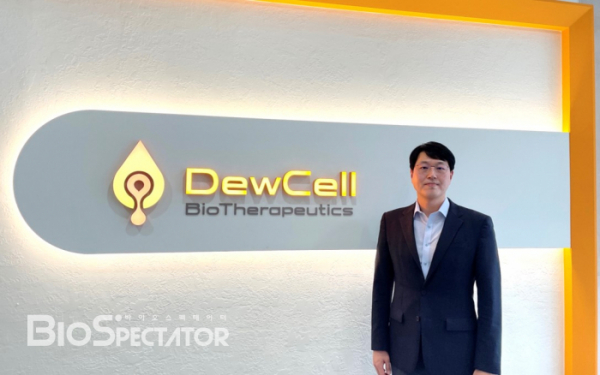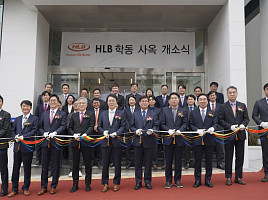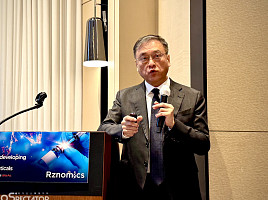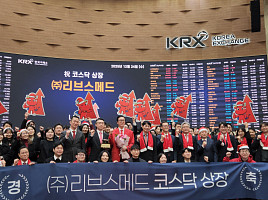기사본문
DewCell Biotherapeutics, 'Three Points' to Develop Platelets that are in 'Supply Shortage'
입력 2022-07-11 09:20 수정 2022-07-11 09:20
by Yoonseok Suh

DewCell Biotherapeutics has started developing artificial platelets using induced pluripotent stem cells (iPSC). DewCell Biotherapeutics paid attention to three points: unmet medical demand is high due to insufficient supply, it is possible to achieve market dominance in Korea, and clinical trials are expected to proceed faster than new drug development.
According to the website of the Korean Red Cross, the total reserve of platelets in Korea is only for 1.9 days(based on 4 days). Currently, it is a field with high unmet demand, which is being used limitedly for those who really need it, such as patients who need an emergency blood transfusion during surgery and leukemia patients. Platelets are an essential component involved in blood coagulation and are supplied only through blood donation and only a small volume(less than 1% of whole blood) can be collected from blood.
Currently, the international community consumes blood for the purpose of transfusion and hemostasis only in producing countries(regions) according to the 'Self-sufficiency policy' according to the recommendations of the World Health Organization(WHO) and the International Federation of Red Cross(IFRC). Because blood test methods and business standards differ in each country, supplying and managing blood through direct blood donation is not only safe from infections such as HIV and hepatitis but also prevents buying and selling other people's blood.
In March, the Ministry of Health and Welfare has been promoting a research project to obtain the source technology for manufacturing artificial blood in response to the blood shortage as a multi-ministerial project. In a situation where the amount of blood donation is decreasing due to low fertility and an aging population, this is to overcome the limitations of the existing blood supply system and to solve safety problems that occurred during the blood donation process, the short duration of storage of transfused blood, and difficulties in supply.
Minwoo Lee, CEO of DewCell Biotherapeutics, said “Platelets are not only necessary for blood transfusion and hemostasis in the surgical procedure but also an essential drug that must be administered to patients with thrombocytopenia and leukemia. However, there is a limit to being supplied only through blood donation.” He also mentioned, “As the only artificial platelets developer in Korea, we will solve the domestic supply shortage and preoccupy the domestic market before entering the global market.”
Currently, the blood product market in Korea, including platelets, is small at about 200 billion won. However, it is possible to achieve market dominance since there are no companies engaged in the development of artificial platelets until now. CEO Lee said that if artificial platelets are developed, it is expected that the market itself, which is required platelets, such as thrombocytopenia and hemophilia, will grow in addition to the emergency blood transfusion, which is currently in short supply.
Blood is made up of about 55% plasma, 44% red blood cells, and 1% platelets and white blood cells. Plasma contains a low number of platelets(platelet-poor plasma, PPP) in the upper layer and their associated growth factors such as PDGF, EGF, and VEGF. Platelets are a key component in blood coagulation and are mostly concentrated in the vicinity of the white blood cell layer in the lower part of the plasma, forming RPR(platelet-rich plasma).
DewCell Biotherapeutics is concentrating on technology development based on a three-step core development strategy. The first step is to check whether artificial platelets differentiated from about 10 types of stem cells have characteristics similar to those of platelets in their natural state. Specifically, it is a process of differentiating hematopoietic stem cells(HSCs) obtained from stem cells into mature megakaryocytes and verifying their functions.
The second step is the stage of setting up a cell line for mass production of mature megakaryocytes by applying megakaryocyte differentiation technology established in step 1 to iPSCs or mesenchymal stem cells(MSCs). DewCell Biotherapeutics plans to develop a cell line for mass production by manipulating three genes that induce differentiation into megakaryocytes. In addition, Dewcell Biotherapeutics is expected to establish a stable cell banking system in cooperation with Satorius Korea.
The third step is mass culture and purification, which is the key technology in the development of artificial platelets. DewCell Biotherapeutics plans to establish culture and purification technology for mass production of artificial platelets by December next year in cooperation with Sartorius Korea. DewCell Biotherapeutics expects that the technology transfer of the manufacturing plant itself will be possible if the mass culture and purification technology of artificial platelets is established.
CEO Lee said, “The most important thing is the yield, and how many artificial platelets can be obtained per unit cell line will become our competitive edge." and “Competitors have taken ten years to establish the mass-culture and process procedures, and now they have entered clinical trials.”
Dewcell Biotherapeutics will develop improved mass-culture and purification technology by referring to the difficulties experienced by leading groups, and verify the safety and efficacy of artificial platelets in preclinical studies using mouse models.
DewCell Biotherapeutics anticipates that once artificial platelets enter clinical trials, they will proceed rapidly unlike other clinical trials for new drug development. This is because the number of potential participants for the clinical trial is large, and hemostasis can be checked immediately after the administration of artificial platelets. The indication that Dewcell Biotherapeutics is targeting first is artificial platelets for emergency transfusion patients and plans to expand it to thrombocytopenia caused by chemotherapy and thrombocytopenia caused by complex or genetic diseases.
As global competitors developing artificial platelets, Megakaryon in Japan and Platelet Bio in the US are known. Megakaryon is currently conducting a phase 1 clinical trial for emergency blood transfusion, which is the same indication as Dewcell Biotherapeutics is targeting. Platelet Bio is carrying out preclinical research on thrombocytopenia.
Meanwhile, Dewcell Biotherapeutics was founded by CEO Minwoo Lee in October last year and was selected as a TIPS project in February of this year. After working at Green Cross and Handok, CEO Lee served as a co-founder of 1st Biotherapeutics and strategic planning manager.
As the head of the R&D division, executive director Chi-hwa Kim, who served as the director of the research center at HaplnScience after working at Samsung Biomedical Research Institute, MOGAM Institute for Biomedical Research, and Green Cross, was recruited. In particular, executive director Kim has various hematology-related research experiences using hematopoietic stem cells and is playing a key role in the development of artificial platelets.
관련기사
- Company & Person of the year 2022: Samsung Biologics and Jungjin Seo
- Veraverse, What is the concept of 'Bioenergetic Checkpoint Inhibition'?
- Seers Technology has the strength in the field of 'Untact Care' based on the ...
- Standigm has 'evidence-based' AI-aided drug target discovery platform.."globa...
- Samsung Biologics, incorporated Bioepis as a 100% subsidiary.."move forward a...





![[인사]한미그룹 2026년 정기 임원인사](https://img.etoday.co.kr/crop/268/200/2071974.jpg)

